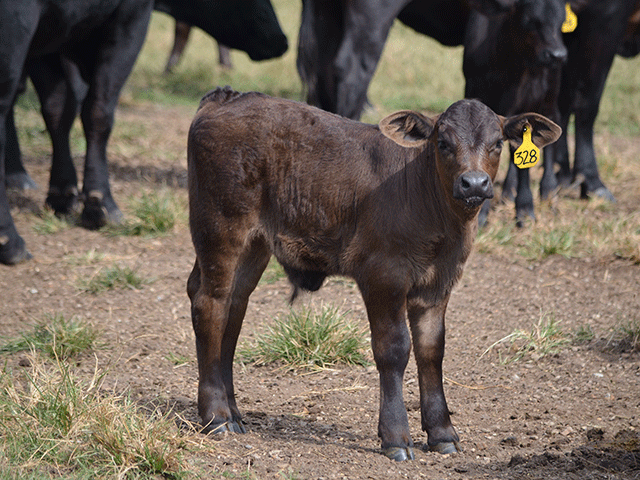Ask the Vet
Orphan Calves
Question:
Most years we end up raising at least one orphan calf. Most have done OK, but some have gotten sick and we have lost some. Do you have suggestions for managing them?
Answer:
Passive immunity is the key to raising any calf and is even more critical in an orphan calf. Passive immunity in calves comes entirely from the dam's colostrum. In most cases with orphans, you have to feed the calf the colostrum it needs. A newborn calf needs to consume about 8% of its body weight in colostrum within the first 12 hours of life -- basically 2 quarts for an 80- to 100-pound calf. In some cases, this colostrum may be obtained from milking the dam or another high-producing cow that has just calved.
In most beef operations, the colostrum will be frozen high-quality colostrum from a very good dairy, or a commercial colostrum replacer containing at least 100 grams of immunoglobulins. I prefer the colostrum replacer.
The sooner colostrum is given after birth, the better the absorption. A second bag of colostrum replacer given within the first 12 hours of life helps maximize passive immunity. After 24 hours, colostrum will no longer be absorbed.
An esophageal feeder may be used if the calf is reluctant to nurse. Even the attempt to nurse by the calf will close a groove in its stomach and shunt the colostrum from the rumen into the true stomach where it is supposed to be.
After this first 12 hours of life is past, maintain the orphan calf on a high-quality milk replacer. It should contain less than 1% crude fiber. Typically, the calf is fed 8% of its body weight divided into equal feedings as close to 12 hours apart as possible. The milk amount stays the same, and after the first week or so of life, hay and a calf starter ration or a total mixed ration is made available. As the calf grows and energy demands increase, the calf will gradually begin eating the hay and grain. Most dairy calves are weaned once they are consuming 2 pounds of calf starter a day. We have had our best success continuing milk in beef calves for several months.
Sanitation goes hand and hand with passive immunity in preventing disease in orphan calves. They do not have Momma looking out for them. They must be kept in a clean, dry environment and protected from wind, mud, manure and extreme temperatures.
(c) Copyright 2021 DTN, LLC. All rights reserved.
P[L1] D[0x0] M[300x250] OOP[F] ADUNIT[] T[]






